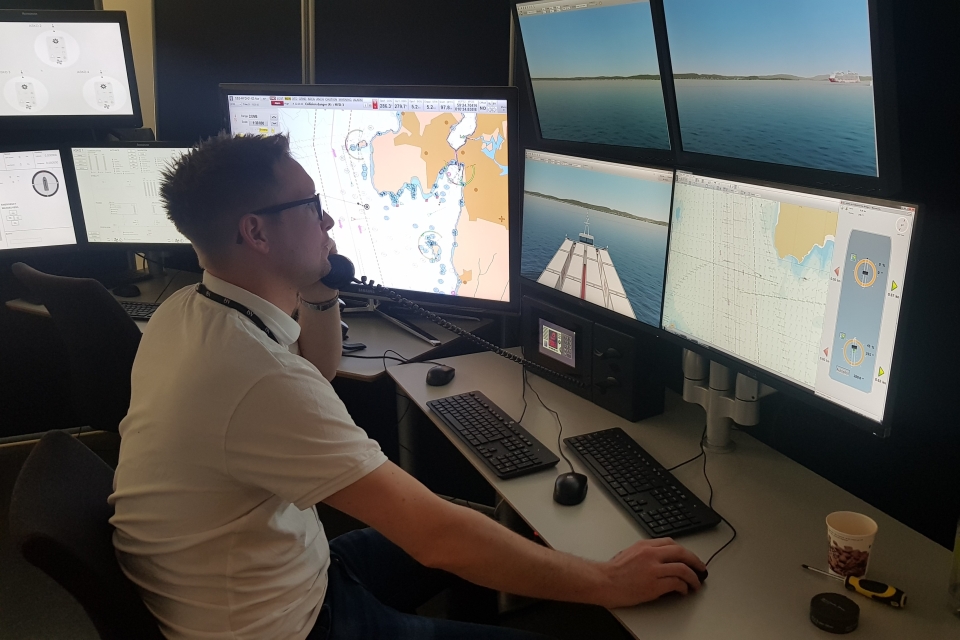Classification society DNV has introduced the shipping industry’s first competence standard for vessel remote control centre operators (RCCOs). It is supported by a recommended practice with a certification scheme for RCCOs. Together, they provide a framework for training, assessing, and certifying personnel working in remote control centres that support or manage operations at sea.
Intelligent software systems and enhanced ship-to-shore-connectivity have laid the groundwork for the growth of remote solutions and autonomy in shipping. Unmanned vessels are already expected to begin operations in the near future.
Ensuring that these vessels operate at an equivalent level of safety is essential to building confidence and realising the potential of these technologies. However, despite the technical solutions being in place, competence requirements for those monitoring, supporting and/or controlling these ships have not been defined.
‘Making sure that shore-based staff are prepared for autonomous, remote-controlled or remotely supported operations at sea is a big challenge,’ says Torsten Schröder, SeaSkill Service Manager, Competence & Learning at DNV Maritime. ‘Because when it comes the wider application of these technologies, trust in the systems, and the people managing these operations is paramount. This is why we are so pleased to have developed the RP with expert partners from across the industry. Having a wide range of expertise was essential to devising a uniform and controlled approach to the training, assessment and certification of RCCOs.’
Also read: DNV launches JIP for floating offshore wind substations
Competence standard and recommended practice
The new DNV competence standard for remote control centre operators (DNV-ST-0324) and the supporting recommended practice (DNV-RP-0323) were developed in collaboration with Kongsberg Maritime, Wilhelmsen, as well as the University of South-Eastern Norway, and the Norwegian Maritime Authority.
The recommended practice, DNV-RP-0323, gives guidance to centres conducting examinations of RCCOs and issuing personnel certificates as a certification body. It also covers the competence building process for candidates before undertaking an RCCO examination, for example learning programmes and practice sessions in the centres themselves.
The DNV SeaSkill standard ST-0324 provides a foundation for the entire process. It lists the required competencies for the operation of autonomous or remotely controlled and/or supported ships.
It also covers competency in:
- Emergency handling and resource management within a remote control centre (RCC).
- Communication with third parties on behalf of the ship under remote-control.
- Man-machine interaction.
RCCO certificates can be registered in an existing DNV online database, making it possible for interested parties to verify qualifications and validity of an RCCO certificate.
Picture: With its new competence standard and recommended practice, DNV is the first classification society to set competence requirements for vessel remote control centre operators, who work with autonomous, remote-controlled, or remotely supported operations at sea.
Also read: DNV GL conducts world’s first ROV in-water ship bottom surveys








